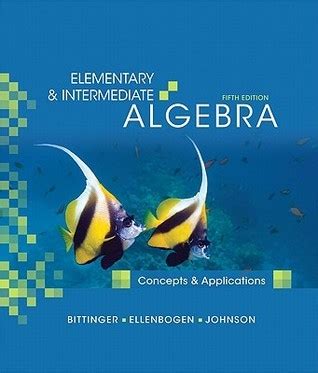Algebra can be a daunting subject for many students, but with the right approach, it can be made easy and even enjoyable. In this article, we will explore the world of elementary and intermediate algebra, breaking down complex concepts into manageable chunks, and providing practical tips and examples to help you master these skills.
Why Algebra Matters
Before we dive into the nitty-gritty of algebra, let's take a step back and ask ourselves why algebra matters. Algebra is a fundamental subject that underlies many areas of mathematics, science, and engineering. It provides a powerful tool for problem-solving, critical thinking, and analytical reasoning. By mastering algebra, you will be able to tackle complex problems in a variety of fields, from physics and engineering to computer science and economics.
Elementary Algebra Concepts
Elementary algebra is the foundation upon which all future algebraic knowledge is built. It involves basic concepts such as variables, constants, and mathematical operations. Let's take a closer look at some of the key concepts in elementary algebra:
- Variables and Expressions: A variable is a letter or symbol that represents a value that can change. An expression is a collection of variables, constants, and mathematical operations that can be evaluated to produce a value.
- Equations and Inequalities: An equation is a statement that says two expressions are equal, while an inequality is a statement that says one expression is greater than or less than another.
- Linear Equations: A linear equation is an equation in which the highest power of the variable is 1. Linear equations can be solved using basic algebraic techniques such as addition, subtraction, multiplication, and division.

Intermediate Algebra Concepts
Intermediate algebra builds upon the foundations of elementary algebra, introducing more advanced concepts such as quadratic equations, functions, and graphing. Let's take a closer look at some of the key concepts in intermediate algebra:
- Quadratic Equations: A quadratic equation is an equation in which the highest power of the variable is 2. Quadratic equations can be solved using techniques such as factoring, quadratic formula, and graphing.
- Functions: A function is a relation between a set of inputs and a set of possible outputs. Functions can be represented using equations, tables, and graphs.
- Graphing: Graphing is a powerful tool for visualizing relationships between variables. Graphs can be used to solve equations, inequalities, and systems of equations.

Tips and Strategies for Mastering Algebra
Mastering algebra requires practice, patience, and persistence. Here are some tips and strategies to help you succeed:
- Start with the Basics: Make sure you have a solid understanding of elementary algebra concepts before moving on to intermediate algebra.
- Practice Regularly: Practice is key to mastering algebra. Set aside time each day to practice solving equations, graphing functions, and solving systems of equations.
- Use Online Resources: There are many online resources available to help you learn algebra, including video tutorials, online worksheets, and algebra software.
- Join a Study Group: Joining a study group can be a great way to get support and motivation from fellow students.

Real-World Applications of Algebra
Algebra has many real-world applications in fields such as physics, engineering, computer science, and economics. Here are a few examples:
- Physics: Algebra is used to describe the motion of objects, forces, and energy.
- Engineering: Algebra is used to design and optimize systems, such as bridges, buildings, and electronic circuits.
- Computer Science: Algebra is used to develop algorithms and model complex systems, such as computer networks and artificial intelligence.
- Economics: Algebra is used to model economic systems, understand the behavior of markets, and make predictions about future trends.

Gallery of Algebra Concepts






FAQs
What is algebra?
+Algebra is a branch of mathematics that deals with variables and their relationships.
Why is algebra important?
+Algebra is important because it provides a powerful tool for problem-solving, critical thinking, and analytical reasoning.
How can I learn algebra?
+You can learn algebra by starting with the basics, practicing regularly, and using online resources.
By following these tips and strategies, you can master elementary and intermediate algebra concepts and unlock a world of possibilities in mathematics, science, and engineering. Remember to practice regularly, use online resources, and join a study group to get support and motivation. With persistence and dedication, you can overcome any obstacle and achieve success in algebra.
